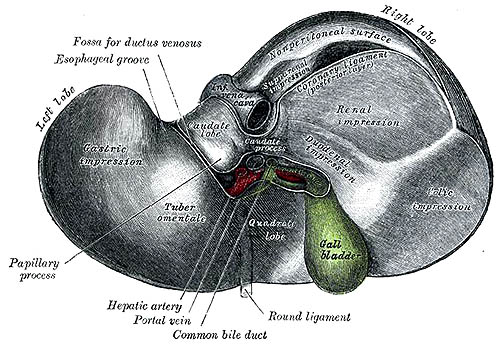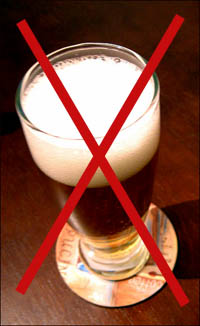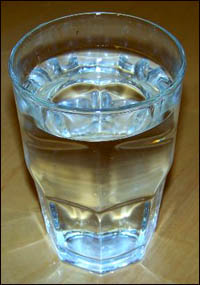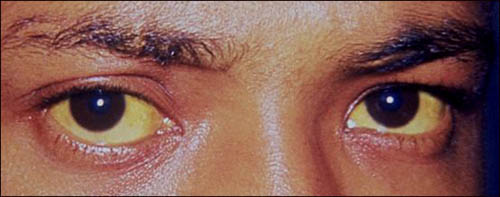Taking a Liver Function Test – Catching Symptoms of Liver Problems Early On
Taking a liver function test is one of the best ways to be sure that you can catch the symptoms of liver problems before they get out of control.
Your liver is one of the most important organs in your body, even though most people forget that they even have a liver.
The truth is that without your liver your body would completely shut down, and your liver plays a central function in keeping your body working well. For this reason, if you suspect that you might have liver problems, seriously do consider taking a liver function test to be sure that your liver is functioning properly – particularly if you explicitly see symptoms of liver problems (which we will get to in a bit).
What is this Liver Function Test?
 So what is the liver function test?
So what is the liver function test?
Well, the purpose of the liver test is to determine that all the chemicals being produced by your liver are well balanced, as too much of some chemicals will indicate a serious problem in your body.
When the liver has problems, certain chemicals are produced in higher quantities than normal while others are produced in lower quantities.
The purpose of the liver test is to check the levels of these chemicals in order to find out what the problems are.
The Chemicals That are Measured in the Liver Function Test
The following chemicals are measured in the liver test:
- Albumin is the primary protein that the liver produces, and it is spread to the rest of the body via your blood.
Some liver problems affect your body’s ability to produce albumin, and so a low level of this protein showing up on the test is a sign to doctors that there is something wrong with the liver.
- ALT (alanine aminotransferase) is the enzyme that makes it possible for your body to process some of the proteins in your body, and ALT is found in large amounts in your body’s cells.
If your liver is swollen or damaged, you will find that you ALT levels are usually much higher than normal.
- ALP (alkaline phosphatase) is an enzyme that is found near bile ducts, but it is also found in your bones. If your ALP is very high, it may be a sign that you either have a bone or a liver disorder, and thus further tests will be needed.
- AST (aspartate transaminase) is an enzyme in the cells of your liver, and a high level of this enzyme is a signal that your liver has been damaged somehow. However, it is not the best indicator of liver problems, as it is also produced by the body when your skeletal muscles or your heart have received some injury – which is why ALT is one of the best indicators of liver problems.
- Bilirubin is the chemical that is responsible for the color of your bile, and it is made from hemoglobin. Hemoglobin is made when your blood cells are broken down, and too much hemoglobin means that there is too much bilirubin in your body – which will cause you to appear very jaundiced (your body turns yellow). A high level of bilirubin stuck to sugar particles can be an indication of liver problems like hepatitis or alcohol abuse, while a high level of bilirubin particles floating around without sugar particles attached can mean problems like anemia.
- Total protein is the sum of all of the proteins made by your liver, and they are tested to ensure that your blood doesn’t have too much of any one chemical.
These are the things that are tested in the liver test, so it can be a good idea to get an idea of what all of these things mean when you go in for your liver function test.
Why Is a Liver Test Important?
Why is a liver function test so important? The truth is that the liver is one of the most essential organs in your body.
Sure, it may not have a glamorous job like your brain, heart, or stomach, but it still serves one of the most important functions in your body.
The Functions Performed by Your Precious Liver
Your liver:
- Stores all of the nutrients that your digestive system has removed from the food that you eat, nutrients that will be distributed to the rest of your body.
- Helps to break down fat to be converted into energy when your body needs an infusion of energy quickly.
- Produces bile, which is the stomach acid that helps to break down the food in your stomach and absorb all the nutrients in the food.
- Makes the blood proteins mentioned above, all of which are needed for a wide variety of important bodily functions.
- Gets rid of harmful substances floating around your body, such as toxins and chemicals that your body can’t absorb.
- Makes it possible for your blood to form clots, which helps to avoid problems with bleeding.
- Produces certain chemicals that the body actually needs and is unable to function without.
All of the liver processes are vital, so you can see why testing the liver is so important.
Symptoms of Liver Problemts – This Is When It Is Time to Get a Liver Test
There are certain times when a liver function test is recommended by doctors, such as:
- When your skin or the whites of your eyes become yellow, also known as jaundiced. The liver function test helps to determine what is causing the jaundice.
- When you are getting a general checkup, as that helps your doctor to be certain that your liver is still functioning properly.
- When you have been diagnosed with cancer or some other illness, as there is a risk of secondary cancer in your liver or the disease spreading to your liver before moving on to the rest of your body.
- Before you undergo treatment for a liver disorder, as well as after the treatment has been completed. This helps to determine how effective the treatment has been.
The liver function test is important for doctors to run, as the liver often reflects the condition of the rest of your body. If your liver is having problems, there is a serious risk that other parts of your body will be affected by it as well, and this is where the liver function test comes in.
List of Common Liver Diseases
There are a number of common liver diseases that the liver function test can catch, and it is important to know what these common diseases are in order to watch out for their symptoms.
They include:
Acetaminophen Toxicity
Acetaminophen is a substance used in all kinds of common medications like Tylenol, but when there is too much in your system you may find that your liver will start having problems.
Your skin will get itchy, your urine may be very dark, your skin and eyes will be jaundiced, and you may experience symptoms reminiscent of the flu.
Cirrhosis
Cirrhosis is a disorder that may set in when you get drink too much alcohol, and it is considered one of the main causes of death in the country.
It takes years of overdrinking for alcoholic liver disease to become a problem, but once it does you will find that you have dry mouth, jaundice, a decrease in your appetite, increase in your weight, pain in your stomach, fatigue, fever, and more. 
Liver Cancer
Primary liver cancer is a liver problem that is hard to detect, and most people don’t catch it until it is too late due to the fact that the symptoms aren’t usually visible earlier on.
The symptoms of liver cancer include jaundice, weight loss, vomiting, nausea, an overall feeling of tiredness and exhaustion, a swollen liver, swelling and pain in your stomach, and more.
Cysts
Liver cysts are basically little bubbles in your liver that have very thin walls, and that are filled with fluid. They are usually benign and aren’t a problem, but they can grow to the point where they are very painful.
They can also cause infections in the bile ducts, obstruction of the ducts, cause the liver to get swollen, pain in your stomach, and even infections in the cyst itself. They don’t usually cause any side effects, but they are usually detected by accident and treated quite easily.
Fatty Liver Disease
Fatty liver disease is not related to alcohol, but it ranges in severity.
Steatosis is the mildest form of NAFLD (non-alcoholic fatty liver disease), and there are no symptoms.
NASH (non-alcoholic steatohepatitis), on the other hand, causes swelling and soon signs of necrosis will show up if it is left untreated.
Cirrhosis is the final stage of NAFLD, and it can cause scarring in the liver that makes it impossible for the organ to work well.
NAFLD can show symptoms like liver failure, decrease in sex drive, nausea, weight loss, jaundice, dark brown urine, fluid in your stomach cavity, and more.
Hepatitis
Hepatitis is a gastroenterological disease, and it causes the liver to become swollen. There are a variety of types of hepatitis, but all of them cause damage to the liver that then makes the liver more likely to become permanently damaged.
Symptoms of hepatitis can include dark urine, pain in your stomach, fever, general tiredness, jaundice, a headache, a lot of vomiting for the first few days of the disorder, and more.
Fibrosis
This is considered as the third stage of Alcoholic liver disease, and this is the part of the disease when the hard scar tissue begins to form.
This stops the blood from flowing properly, which can lead to permanent damage to the liver which results in liver function loss. Symptoms of fibrosis include pain in your stomach, dark urine, fatigue, a decrease in your sex drive, weight loss, jaundice, edema, swelling in the liver, and more.
These are a few of the more common liver disorders, and it is important that you watch out for the symptoms mentioned above in order to catch these diseases before they get out of hand.
Side Effects of Impaired Liver Function
“But what happens when my liver doesn’t function as well as it should?”
Well, remember that the liver controls all the things mentioned above, so obviously all of the liver functions will begin to slow down and work at less than optimum levels.
If the liver stops working well, the toxins and fats circulating through the bloodstream will build up, which can lead to toxicity in the body and problems with triglycerides and cholesterol.
This can lead in turn to heart problems, damage to the kidney and liver, and finally liver failure.
You can see why it is so important to care for your liver…
How to Deal With Liver Problems – If You Liver Functions Test Comes Back with Issues You Need to Address
 So, what do you do if you have liver problems?
So, what do you do if you have liver problems?
The first thing to do is to cut out any and all toxins or chemicals from your body.
The ‘easiest’ way to do so is by stopping drinking or taking drugs. Also medications can be very hard on your liver.
However, make sure to consult your doctor before you stop any medication.
This can help to reduce the presence of harmful chemicals in your body, which will in turn help to reduce the amount of damage your liver is receiving on a regular basis.
 Next drink plenty of water to flush your body of all the toxins and chemicals.
Next drink plenty of water to flush your body of all the toxins and chemicals.
Also take the time to start eating the right foods.
There are certain foods that will increase the damage being done to your liver, so you need to take care to avoid these foods.
Follow a diet that has lots of fiber, very little sodium, some healthy fats, and as little cholesterol as possible.
Also, make sure to do plenty of exercise that will get your heart pumping and your blood flowing. 
Don’t push yourself too hard, but do mild exercise to avoid straining your body.
Look into your options for treatments, both natural and medications. There are supplements like the milk thistle that can help to restore your liver to full function, but you may also want to look into the medical alternatives if your liver problems are getting out of hand.
It is important that you know what you have to do to stay healthy, and you would do well to look into all of your options before deciding what method of treating your liver problems are the best for you.
What Would You Like to Read Now After This Article on a Liver Function Test?
Keys to a Liver Detox Diet and Healthy Liver Diet
Healthy Liver Supplements: Your Detailed Guide to a Natural Liver Cleanse Diet
Guide to a Healthy Liver Diet: Make Your Own Liver Cleansing Diet
Lots of Healthy Liver Diet Tips and Free Liver Diet Examples
In-Depth Liver Cleanse Recipe Information: The Best Natural Liver Cleansing Tips for Liver Flushing and Detox
Your Guide to a Powerful Liver Cleanse Diet: Choose the Right Kinds of Fiber, Protein, Vegetables, Fruits and Fats in Your Healthy Liver Diet
The Effective Liver Diet: Step by Step Guidelines to a Natural Liver Detox Diet
The Research-Based Liver Flush Guide: Beyond the Myths of Radical Detox Methods
The Wonder of the Milk Thistle Liver Supplement for a Natural Liver Detox
Where is Your Liver Located, What is the Function of the Liver, and Other Liver Information
Symptoms of Liver Problems – How to Know if You Need a Natural Liver Detox
Fatty Liver Diet Supplements, Herbs and Foods along with Insights into the Causes of Fatty Liver
Fatty Liver Disease in Depth: Typical Signs and Symptoms, Alcoholic and Non-Alcoholic Causes and Dietary & Medicine Treatments
Fatty Liver Causes: Alcoholic (AFLD) and Nonalcoholic (NAFLD) In-Depth
Go to the top of this article about Liver Function Test
Go to the homepage Liver Cleansing Diet

